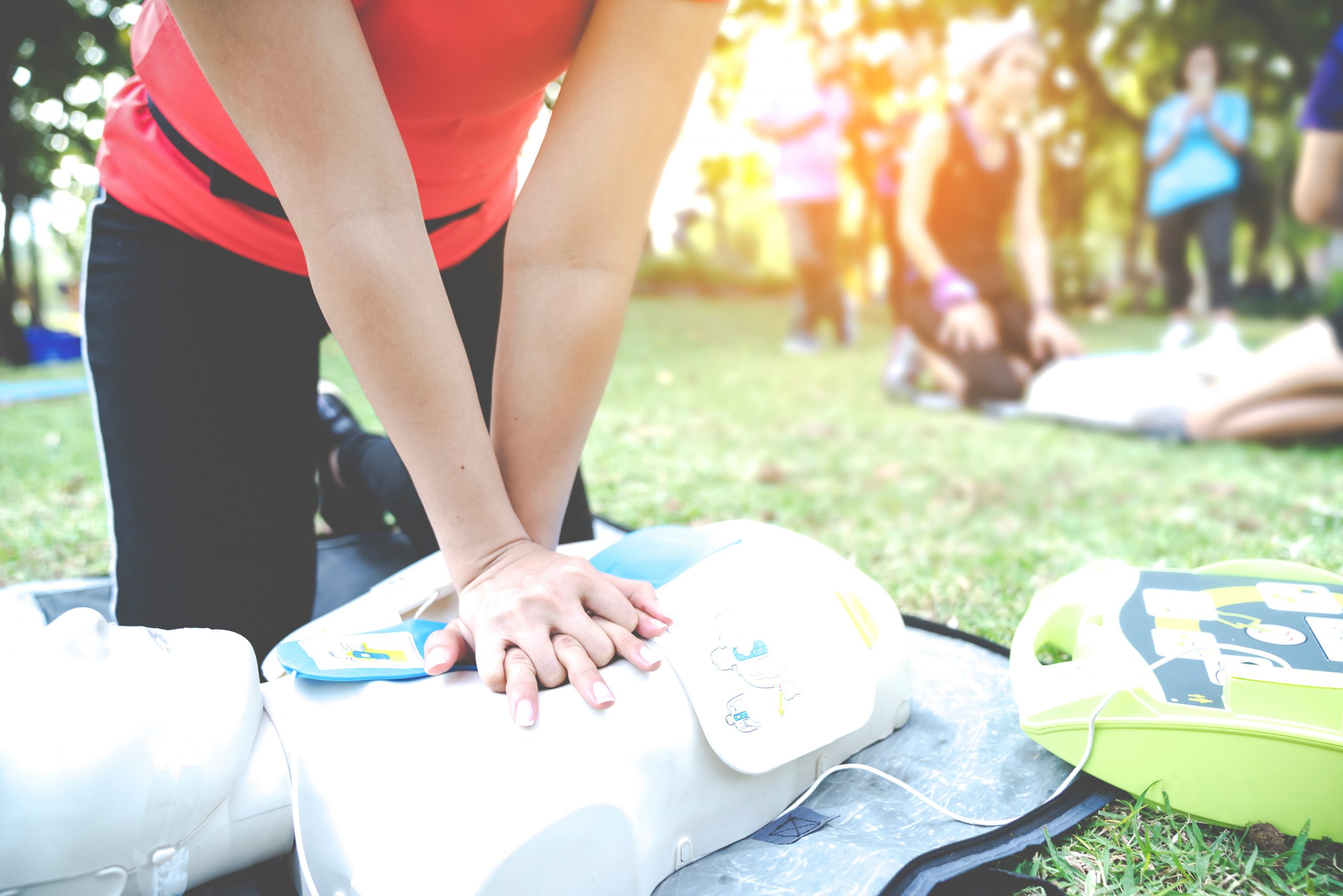Home | Knowledge Hub | News & Insights |
The Benefits of First Aid Training
Gurpreet Singh | 13th January 2023 | 5 mins
Imagine the following scenario; you are at work and an accident happens that results in injury, would you feel confident dealing with the accident? If the answer is no, then undertaking first aid training may be something well worth considering.
What is First Aid?
First Aid is defined as the emergency care or treatment given to an ill or injured person before professional medical help can be obtained. From helping someone with a minor injury to saving someone’s life, knowing first aid serves many useful purposes.
With this in mind, the ability to administer first aid is a key skill. However, it is a course that many overlook.
Whether it’s because you don’t have the time, or because you’re having trouble finding relevant information. Perhaps, above all you may be stuck in the mindset of ‘it won’t happen to me, I won’t be in that situation.’ There are a hundred and one reasons why you may overlook first aid training.
However, the best way to treat accident and emergencies isn’t to see it as a bridge to cross when you get there. Rather, to prepare for the scenario, as if it is going to happen.
What are the Benefits of First Aid Training?
It Can Save Lives
Arguably the most important benefit of undertaking first aid training is you gain the ability to potentially save a life. According to a British Red Cross study, up to 59% of deaths as a result of injuries may have been prevented if first aid had been given prior to the arrival of the emergency services.
Here’s another statistic for you – in the case of cardiac arrest, if CPR is performed straight away, it could double or triple the chances of survival. Powerful statistics that show how important first aid training can prove to be.
Increased Confidence and Calmness
Accidents can happen at any time, anywhere and without warning. As a result, medical emergencies offer up an unpredictable nature, making them both difficult to prepare for and challenging to remain calm and in control.
Typically, the more you learn about something, the more knowledgeable and more confident you become around that subject area. First aid training is of no exception to this rule. Attending a course and learning first-aid, will help to instil confidence within yourself and your ability to deal with a medical emergency.
Increased Safety Consciousness
Through first aid training, you will naturally become more safety conscious. This is because, as you cover the course curriculum, you will find yourself becoming increasingly aware of the risks and dangers that exist in both the workplace and everyday surroundings.
Being able to spot potential risks and dangers with your heightened state of awareness naturally makes you more inclined to practice safety habits, making you more safety conscious.
It’s no surprise that safety consciousness is one of the most influential factors in the prevention of accidents. If you are safety conscious, simply put it means you value safety allowing you to set a positive example for your colleagues, friends and family.
Improved Communication Skills
Being able to effectively communicate, will set you in good stead for many different situations you may face, none more so than in a medical emergency.
Whether it be a child or an adult, when someone is involved in an accident naturally, they can become distressed and panicked. This is one of the instances, where communication is vitally important. By undertaking first aid training, you will learn how to communicate and adapt to the situation at hand. You will learn how to build rapport with the casualty, helping to re-assure them and be the person they rely on.
Furthermore, effective communication is particularly important should you need to relay information back to the emergency services. Every situation is different, making the information you feed back to the emergency services vital in painting an accurate picture.
Which First Aid Training Course is Most Suitable for Me?
There are a range of first aid courses, with varying levels. Different first-aid courses offer different scopes of first aid training to help accommodate the contrasting severities of risks in workplaces.
Firstly, there are 2 main types of first aid training.
- Emergency First Aid at Work (EFAW)
- First Aid at Work (FAW)
The Emergency First Aid at Work (EFAW) course is a 1-day training course. The course length is short, comprising of 6 hours of training across the day. The content of the course sets out to cover the basics of first aid. This allows you to become a qualified first aider who can effectively deal with emergency situations.
Comparatively, the First Aid at Work (FAW) is a 3-day training course. The course length is significantly longer than the EFAW course and comprises of 18 hours of training across the 3-days. With the longer course length, the FAW offers you a more in-depth scope of first-aid training. This gives you the chance to cover a wider range of illnesses and emergencies you may face.
Now when trying to determine which course is best for you, you will need to consider the level of risk present in your working environment. Risks and hazards are present in every workplace; however, the level and severity of risk varies. Your working environment should play an influential role in determining which course is most suited to you.
Low-Risk Environments:
For those who work in low-risk environments, the Emergency First Aid at Work (EFAW) 1-day course is the ideal course for you. Low-risk environments are typically ones that have a low level of risks and hazards present. Examples of low-risk workplaces include small offices, conference rooms and small shops.
High-Risk Environments:
For those who work in high-risk environments, the FAW course is the most suitable course for you. Examples of high-risk environments include construction sites, warehouses and manufacturing facilities.
When attempting to determine the level of risk in your working environment, a first aid needs assessment is vital. To better understand what first aid assessments are, the HSE have published guidance which can be found here.
What Courses Can The OM Group Offer You?
We offer the QA Level 3 Emergency First Aid at Work and the QA Level 3 First Aid at Work. Both courses are Ofqual regulated, providing delegates with confidence and assurance in the qualification they take.
With our last cohort of first-aid delegates describing our first aid courses as ‘excellent and invaluable’, take those first steps in joining them in gaining an invaluable qualification.
To find out more about our first aid training offerings or to book on, contact us
Other Insights
Share
Get in touch
hello@theomgroup.co.uk
0344 288 9000
Any questions?
We’re here to help. Ask us a question and one of our experts will provide you with a detailed reply.




